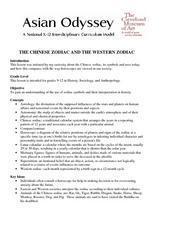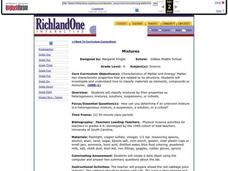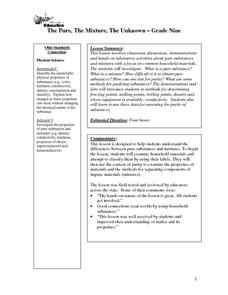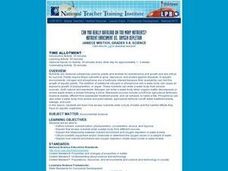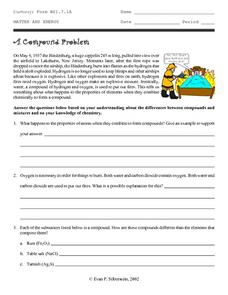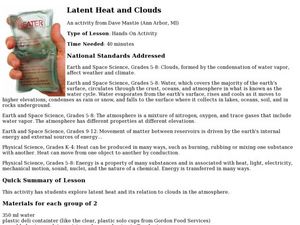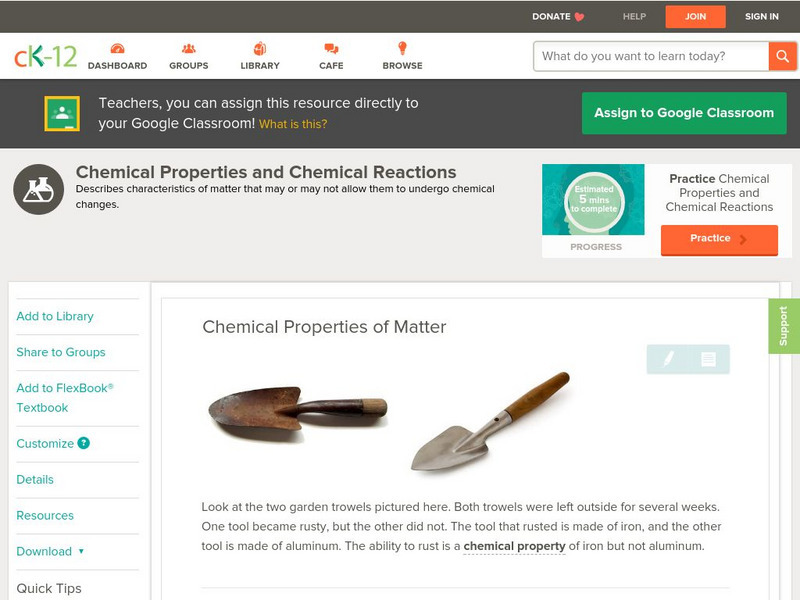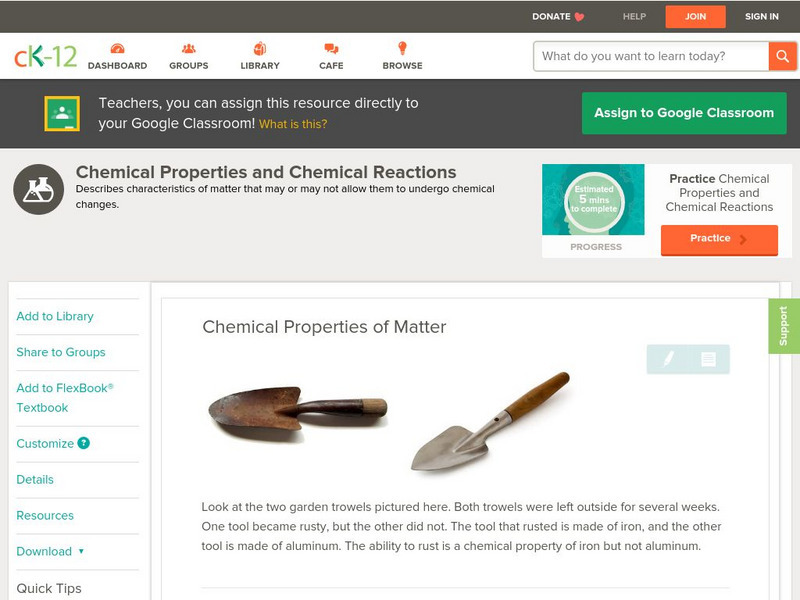Curated OER
"Investigating Hazardous Materials"
Eighth graders gather Internet information on a variety of related topics concerning hazardous waste.
Curated OER
Devising a Set of Experiments to Test Water for Dissolved Substances
Young scholars work together to test water samples for pollutants. They design data tables to collect and record their observations. They complete discussion questions to end the lesson.
Curated OER
What is the Thermal Depolymerization Process?
High schoolers examine the differences between Boyle's Law and Charles' Law. They discuss the concept of thermal depolymerization. They answer discussion questions to end the lesson.
Curated OER
The Chinese Zodiac
Students create their own personalized Zodiac page on a word processing
document after researching and discussing the origins of Zodiak signs. This lesson does include resource links and may be controversial.
Curated OER
The Chinese Zodiac And The Western Zodiac
Students create individual horoscopes that contrast and compare Western and
Chinese views of their futures using poster boards and magic markers. In-class discussion is used to evaluate the use of the Zodiac in different cultures.
Curated OER
Making New Electricity
Students investigate the concepts of energy conversion and conservation. They research the history of energy conversions into electrical energy. They design experiments in order to replicate a conversion of energy into electricity.
Curated OER
Where My Peeps At?
Pupils conduct a series of activity that demonstrates Charles' and Boyle's Law. In this chemistry lesson, students determine the relationship among pressure, volume and temperature. They solve problems using mathematical equation.
Curated OER
Mixtures
Sixth graders experiment with mixtures. In this chemistry instructional activity, 6th graders determine which mixtures are considered heterogeneous, a suspension, a solution or a colloid. Students create a data sheet of what they discover.
Curated OER
The Pure, The Mixture, The Unknown
Ninth graders participate in classroom discussions, demonstrations and hands-on laboratory activities about pure substances and mixtures with a focus on common household materials. They investigate: What is a pure substance? What is a...
Curated OER
Effects of Acid Rain
Third graders explore the concept of acid rain and its effects on ecosystems. They are placed in groups and using a graphic organizer they brainstorm their ideas about what would happen to the ecosystems living within these environments...
Curated OER
Nutrient Enrichment vs. Oxygen Depletion
Students investigate how excess nutrients enter a body of water, and the harmful effects they have on aquatic organisms.
Curated OER
Ammonium Nitrate - Efficient Fertilizers
Young scholars study the chemistry of ammonium nitrate and consider the advantages and disadvantages of this compound. They compare different fertilizers and calculate the molar mass and percent nitrogen in the different fertilizers.
Curated OER
Isotopes; Molecular Notation; Electron Orbits
In this isotopes, molecular notation, and electron orbits learning exercise, students read selections pertaining to isotopes, mass number, molecular notation, electric attraction, and electron orbits. In addition, students complete 11...
Curated OER
Isotopes
In this isotopes worksheet, students review mass number, molecular notation, electron attraction, and electron orbits. This worksheet has 5 matching and 5 short answer questions.
Curated OER
A Compound Problem
In this compounds worksheet, students compare the differences between compounds and mixtures. This worksheet has 3 short answer questions.
Curated OER
Latent Heat and Clouds
Learners explore latent heat and how it relates to clouds in the atmosphere. In this earth science lesson students investigate how clouds are formed. Learners examine clouds and the water cycle.
Curated OER
Dissolving Salt
Fifth graders, in groups, complete an experiment/activity in which they dissolve salt in a cup of hot water and then observe what happens as the water evaporates over the next few weeks.
Curated OER
Density, Iron, and Anemia
Students explain what factors determine density. In this physics lesson, students hypothesize which objects are less dense. They cite the importance of density in everyday life.
Curated OER
Angles: Angles, Angles, Everywhere
Students estimate and accurately measure the size of angles communicate with the appropriate geometric terms and symbols to describe and name angles, lines, line segments, rays
Curated OER
Effects of Ozone in the Air
Fifth graders learn how ground-level ozone is an air pollution problem. Students measure ozone levels and graph the results.
CK-12 Foundation
Ck 12: Physical Science: Chemical Properties of Matter
[Free Registration/Login may be required to access all resource tools.] Definition of chemical property and examples of the chemical properties of matter.
CK-12 Foundation
Ck 12: Physical Science: Chemical Properties of Matter
Definition of chemical property and examples of the chemical properties of matter. [Free Registration/Login may be required to access all resource tools.]
CK-12 Foundation
Ck 12: Chemistry: Chemical Properties of Matter
[Free Registration/Login may be required to access all resource tools.] Definition of chemical property and examples of the chemical properties of matter.
CK-12 Foundation
Ck 12: Fifth Grade Science: Physical Science: Chemical Properties of Matter
A module that provides the definition of chemical property and examples of the chemical properties of matter using explanations, pictures, and review questions.






